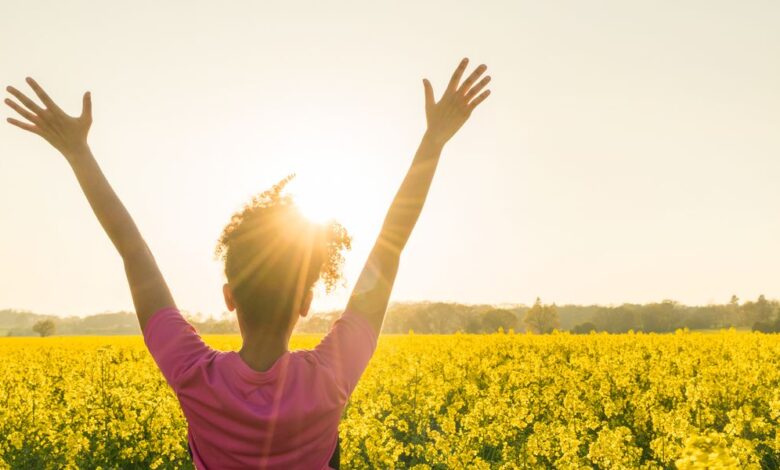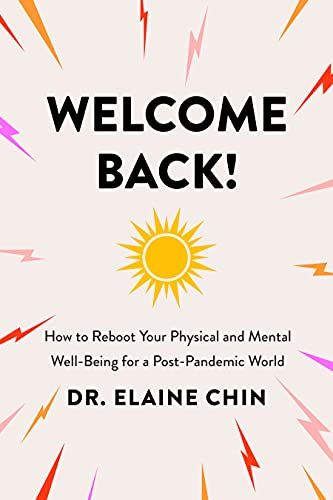How to Repair the Damage the Pandemic Did to Your Mind and Body

[ad_1]
The past year-and-a-half of shutdowns and social distancing — not to mention the health effects of COVID-19 — have rocked us mentally, physically, and emotionally. But, if you’re looking for a brighter side (and who isn’t?), the pandemic has also taught us the importance of nurturing resilience in both body and mind.
In her new book, Welcome Back! How to Reboot Your Physical and Mental Well-Being for a Post-Pandemic World, Elaine Chin, MD, a Toronto-based physician and founder of Executive Health Centre, takes a data-informed look at how the pandemic has affected our health, and more important, offers a road map for moving forward in the healthiest possible way.
Q: What do you recommend as the first steps toward rebooting our health?
A: We all need to recognize that we’ve been through something that we’ve never experienced in our lifetime, literally every human being in this world was impacted by it! The pandemic affected all of us differently, so the first step in moving forward is to take stock of our own health, so we can work on repairing it.
If you haven’t seen your doctor since before the pandemic, you need to make that appointment right now, to make sure you’re not behind on screenings such as mammograms and colonoscopies, and also so she can check your basic biomarkers, including heart rate, blood pressure, respiratory rate and blood oxygen levels. While you’re there, ask her to measure your blood sugar, cholesterol and hormone levels. If the results show something is off, follow her advice to get back on track. Even if everything is within normal ranges, this is the perfect time to reboot by asking, “How do I build a better lifestyle that includes healthy eating, better sleep, and plenty of physical activity?”
Q: Speaking of sleep, it seems like everyone’s cycle got out of whack during the pandemic. We were either losing sleep because of anxiety, or the lines between work and home life got hopelessly blurred. How do we get back on track?
A: Our bodies are biological clocks that thrive on balance and harmony. There are certain times of day when we secrete hormones like cortisol to keep us going, and at the end of the day we secrete melatonin to help us fall asleep. But during the pandemic it was like we were all under house arrest and everything got thrown off. It was almost like flying to a different time zone, and we’ve been jet-lagged this whole time.
Some people slept less, and some slept more, and in many cases this led to very vivid, pandemic-related dreams. I recommend spending some time rediscovering your natural sleep and wake cycle. As soon as you feel tired at night, go to bed, and then see when you wake up without an alarm clock. Find your natural cycle, and then stick to it as best you can. In addition to working on good sleep hygiene, like getting plenty of natural sunlight during the day, keeping your bedroom cool and dark, and putting away electronic devices at least an hour before bedtime, if sleep continues to be an issue, consider trying cognitive behavioral therapy, which can be even more helpful over the long-term than sleep medication.
Q: We can’t talk about the pandemic without discussing mental health — how do we recover from the enormous amount of stress we’ve all experienced?
A: In my book, I talk about several proven ways to destress, including practicing yoga and Tai Chi, which can lower levels of anxiety, fatigue, and depression while also increasing your strength and flexibility and even improving sleep. And the best part is they are both so easy to do at home! But even something as simple as conscious breathing can increase your lung function and reduce muscle tension while helping you get into a meditative state.
Sit comfortably and place one hand on your belly and the other on your chest. Then inhale through your nose and feel the air moving into your belly. Breathe out twice as slowly through pursed lips and notice as your belly goes down. Repeat this for up 10 or 15 minutes a day.
Q: What were some of the positive changes you saw during the pandemic?
A: We all learned that wellness is not a luxury — it’s essential to living a longer and healthier life. Another bit of good news is that so many of us learned to cook at home, because there came a point where how much takeout could you really do?
We also discovered the joy of sitting together and eating as a family — many of us had extra time with our kids and our partners we didn’t expect to have. We’ve also learned a lot about the importance of resilience. We need to take proactive steps to keep us stronger so we can bounce back when there is a health crisis.
Q: How can we start healing emotionally as well?
A: As life starts returning to a new normal, it’s so important to find things to celebrate — both big and small moments. We can get together (safely) to finally welcome that new baby or celebrate last year’s graduate. We can start planning vacations with family or friends. And of course, take time to be in the present and notice all the good things that are around you every day.
This content is created and maintained by a third party, and imported onto this page to help users provide their email addresses. You may be able to find more information about this and similar content at piano.io
[ad_2]
Source link






